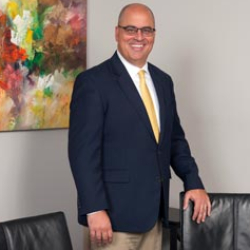The United States, through various agencies such as the Veterans Administration (VA), have historically provided for wartime veterans, their spouses, and their families. Depending on the time in our history, different programs have been enacted; some focused only on veterans and some focused on their families.
Almost 100 years ago, in June 1917, the first United States troops entered France to fight in World War I. They were the precursor to an army that would reach 1 million by the war’s end. They fought in numerous battles; Château-Thierry and Belleau Wood, and participated in the Saint-Mihiel and Meuse-Argonne Offensives in late 1918. By the end of the war many casualties had swelled the ranks of the disabled. These men, their spouses and families, were in need of assistance.
Fortunately, when the United States entered World War I, Congress showed remarkable foresight in establishing programs for disability insurance and rehabilitation for disabled soldiers. These programs helped many veterans get the assistance they needed (veterans benefits) in their daily lives after the war was over.
Although the last of the United States World War I veterans died in 2011, this nation has continued its policy of assisting veterans and their spouses by offering the Veterans Aid and Attendance Pension which is awarded by the Department of Veterans Affairs.(Hide Link) This benefit was designed to provide financial aid for war era veterans and their surviving spouses to help cover the cost of long-term care at home or in an assisted living community. Some of the criteria to receive this benefit are:
- You require the aid of another person in order to perform personal functions required in everyday living, such as bathing, feeding, dressing, attending to the wants of nature, adjusting prosthetic devices, or protecting yourself from the hazards of your daily environment.
- You are bedridden, in that your disability or disabilities requires that you remain in bed apart from any prescribed course of convalescence or treatment.
- You are a patient in a nursing home due to mental or physical incapacity.
- Your eyesight is limited to a corrected 5/200 visual acuity or less in both eyes; or concentric contraction of the visual field to 5 degrees or less
If you think you may qualify for the veterans benefits detailed above, or would like to learn more, contact us online or call (616) 942-6404 to schedule a free initial consultation.

The Law Offices of Sean Patrick Cox is a lawyer. Sean practices in two main areas, family law, and elder law. he has represented clients in complex divorce cases since 1994.





